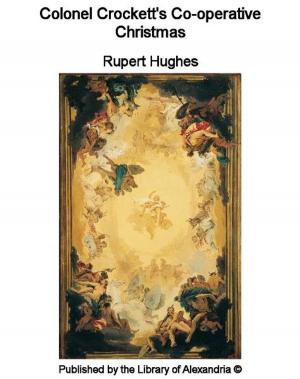| Author: | Vsevolod Vladimirovitch Krestovski | ISBN: | 9781465589125 |
| Publisher: | Library of Alexandria | Publication: | March 8, 2015 |
| Imprint: | Language: | English |
| Author: | Vsevolod Vladimirovitch Krestovski |
| ISBN: | 9781465589125 |
| Publisher: | Library of Alexandria |
| Publication: | March 8, 2015 |
| Imprint: | |
| Language: | English |
Princess Anna Chechevinski for the last time looked at the home of her girlhood, over which the St. Petersburg twilight was descending. Defying the commands of her mother, the traditions of her family, she had decided to elope with the man of her choice. With a last word of farewell to her maid, she wrapped her cloak round her and disappeared into the darkness. The maid’s fate had been a strange one. In one of the districts beyond the Volga lived a noble, a bachelor, luxuriously, caring only for his own amusement. He fished, hunted, and petted the pretty little daughter of his housekeeper, one of his serfs, whom he vaguely intended to set free. He passed hours playing with the pretty child, and even had an old French governess come to give her lessons. She taught little Natasha to dance, to play the piano, to put on the airs and graces of a little lady. So the years passed, and the old nobleman obeyed the girl’s every whim, and his serfs bowed before her and kissed her hands. Gracefully and willfully she queened it over the whole household. Then one fine day the old noble took thought and died. He had forgotten to liberate his housekeeper and her daughter, and, as he was a bachelor, his estate went to his next of kin, the elder Princess Chechevinski. Between the brother and sister a cordial hatred had existed, and they had not seen one another for years. Coming to take possession of the estate, Princess Chechevinski carried things with a high hand. She ordered the housekeeper to the cow house, and carried off the girl Natasha, as her daughter’s maid, to St. Petersburg, from the first hour letting her feel the lash of her bitter tongue and despotic will. Natasha had tried in vain to dry her mother’s tears. With growing anger and sorrow she watched the old house as they drove away, and looking at the old princess she said to herself, “I hate her! I hate her! I will never forgive her!”
Princess Anna Chechevinski for the last time looked at the home of her girlhood, over which the St. Petersburg twilight was descending. Defying the commands of her mother, the traditions of her family, she had decided to elope with the man of her choice. With a last word of farewell to her maid, she wrapped her cloak round her and disappeared into the darkness. The maid’s fate had been a strange one. In one of the districts beyond the Volga lived a noble, a bachelor, luxuriously, caring only for his own amusement. He fished, hunted, and petted the pretty little daughter of his housekeeper, one of his serfs, whom he vaguely intended to set free. He passed hours playing with the pretty child, and even had an old French governess come to give her lessons. She taught little Natasha to dance, to play the piano, to put on the airs and graces of a little lady. So the years passed, and the old nobleman obeyed the girl’s every whim, and his serfs bowed before her and kissed her hands. Gracefully and willfully she queened it over the whole household. Then one fine day the old noble took thought and died. He had forgotten to liberate his housekeeper and her daughter, and, as he was a bachelor, his estate went to his next of kin, the elder Princess Chechevinski. Between the brother and sister a cordial hatred had existed, and they had not seen one another for years. Coming to take possession of the estate, Princess Chechevinski carried things with a high hand. She ordered the housekeeper to the cow house, and carried off the girl Natasha, as her daughter’s maid, to St. Petersburg, from the first hour letting her feel the lash of her bitter tongue and despotic will. Natasha had tried in vain to dry her mother’s tears. With growing anger and sorrow she watched the old house as they drove away, and looking at the old princess she said to herself, “I hate her! I hate her! I will never forgive her!”















